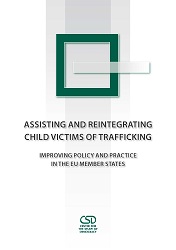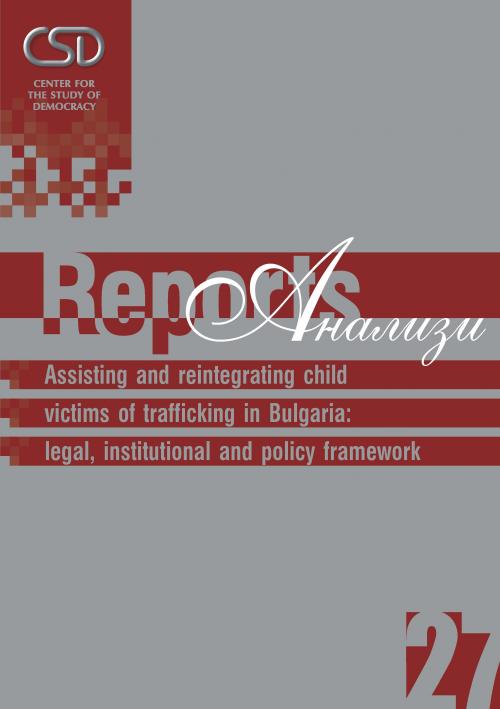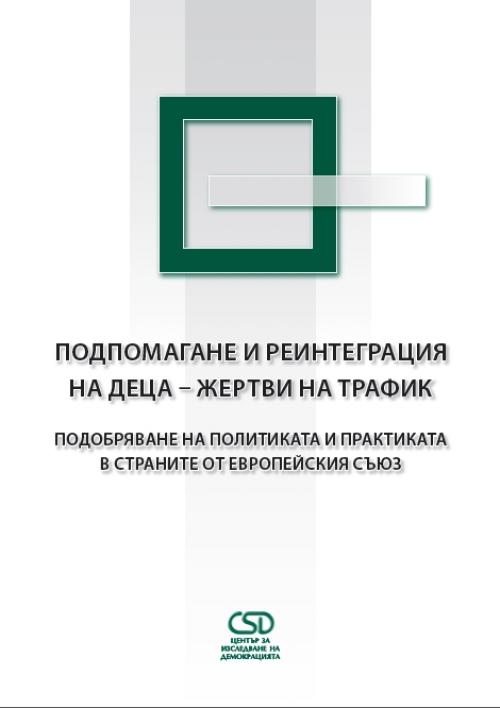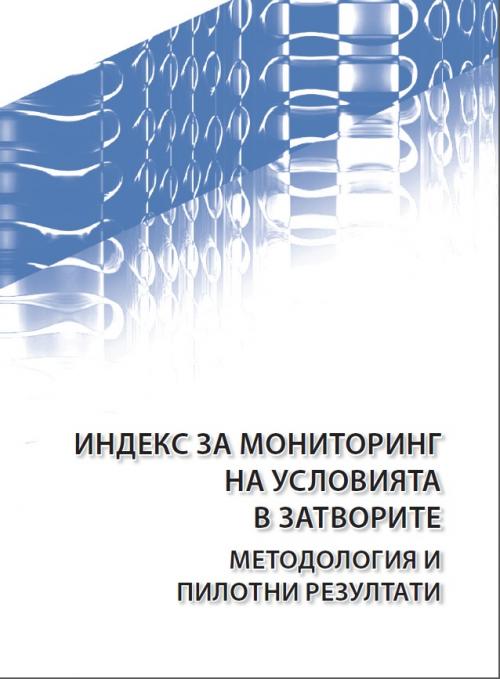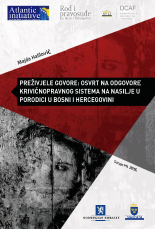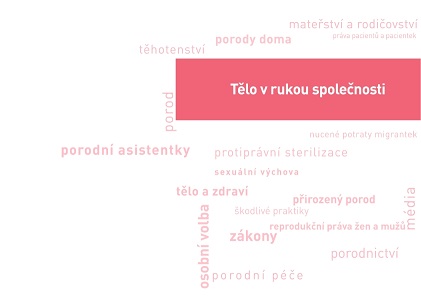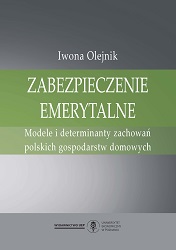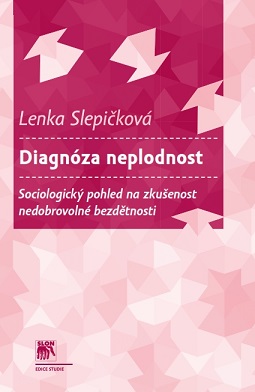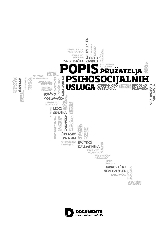Author(s): Aranka Varga / Language(s): Hungarian
INTRODUCTION
The lives of children and youngsters who grew up without family has been handled in various ways throughout history. From the Middle Ages social provision was spreading continuously, and in modern times new orders were made in protection of the children. Nowadays the main question is what kind of care those children receive who are forced to live without their families. Whether we are looking at national or international research concerning child welfare, we can see that their life is harder than those children who live with their family.In this work we are examining how people’s lives change. in their transition from family life to being raised in the child welfare system. Can they make up for their backwardness, and will they have a chance to fit into the society by the time they are adults? These days one of the main concerns in fitting into society is how well educated one is when entering adulthood. This is already important when one starts life with a strong family background, but even more so if that is missing. The work will explore those factorss that promote or inhibit successful learning in the lives of people who grew up without family, and on this basis it will list some suggestions in order to give a solution for the problems.
THE EXAMINED GROUP
In colloquial Hungarian the term 'államigondozott’(’lookedafter by the state’) is used for all children and youngsters who grow up without family under the government's supervision. This term has been legal for decades, although the latest childcare law, which was introduced in 1998, does not use this expression. According to the law ’child welfare provision providing one with home’ (Gyvt. 52. §) (children's home and foster parents) we can talk about where children, who were taken from their family and brought up by the government are placed. In this dissertation the expression 'children in care' will be used when discussing children living in provision as the examined group. Children and youth in this group often refer to themselves as zacis ('pawnshop') and gyivis (a slang and pejorative abbreviation coming from the Hungarian name of the child welfare system). Those outside the system refer to the young people as ' állami gondozott’(’looked after by the state’)19 Szeretném megköszönni Karcagi Szilviának és Heather Tidrich-nek az angol nyelvű összefoglaló¬hoz nyújtott segítséget.• According to the protection of children law: ’Child welfare provision supplying one with a home (data from December 2006)• Temporary (~10%), transitional (~80%), permanent (~10%) foster• In children’s home (~50%), living with foster parents (~50%)• 0-18 years compulsorily provided (~eighteen thousand people), 18-25 years after- care (~four thousand people)’
THE TOPIC
The reason for the choice of the topic of dissertation is complex. Currently in Hungary there is not enough research providing countrywide statistics and a closer look at the reasons for educational failure among children in child welfare. The research studies that were completed after the political transformation concerning the issue were limited and dated.We are lacking national social and educational policies that would specifically focus on increasing educational success among those growing up in child welfare. In the meantime we can see from the national statistical data prepared yearly by the social sphere, that most foster care youth start life with a type of education that they can hardly manage in the labour market. As a consequence the social integration of children growing up in child welfare is probably barely successful.A further aim of the dissertation is to make a more precise observation about children living in child welfare and about their education and their social integration, with the help of an empirical study. Another goal is to try to make a connection between the services provided in child welfare supply system and the educational success of the foster care youth. Another important purpose is to find out howthe educational and the civil spheres complement the work of the social sphere, and what type of opportunities do they use or fail to use in order to help children growing up in child welfare.
RESEARCH QUESTIONS AND HYPOTHESIS
The basic question of the study is what educational strategies the state uses during the socialization process for children and youth in the child welfare system, who are lacking social and economic capital, in order to facilitate the youths’social integration.- While looking at this question we shall see what kind of services the social supply system provides on a legal and professional basis.• Here we take into consideration that the social supply system has its historical heritage and a continuously changing nature, with a special emphasis on how it tries to respond to failures occurring in the field of education.• Another crucial aspect is to examinewhether there is any opportunity in the social supply system that takes into account the special educaional situation of those living in child welfare.• While answering the questions we relied on the opinion of the concerned (people living and working in child welfare) with the help of the regional empirical research mentioned above.- We further inquire how the educational, civil, and social sectors relate in the care of children in the child welfare system. To what extent is this connection systemetized: are the roles and responsibilities organized and shared among the different players, or are they deflected from one sector to another?• We will also touch on the role civil organizations or other players in the civil sphere can play in school success. We also examine what additional features are provided through the involvement of such organizations in the development of these youth. We hypothesize that only through the systematic involvement of all three sectors will they find success.• Different sources help to get closer to the issue such as: the above mentioned empirical research, the strategies on national educational policy and the documents of civil organizations.Besides these research questions we pose several additional questions, outlined below.1. We think that the reasons thatpeople living in child welfare have low education and an educational level rarely applicable in the labour market are because they already have backwardness when they enter the system, and the system is missing developmental services. So, the dissertation started from the assumption that although the child welfare system underwent transformations after the state socialist period that have created the conditions for successful education, in practice the services related to professional development are still incomplete. It means that the structure is suitable for children to get into a favourable placement (whether in foster care or in a children's home), but the necessary financial and human resources are still unavailable for the support of successful schooling. We looked for proof for this assumption within the empirical research.2. Another of our zero-hypotheses is that there are verifiable differences in the education and career of children living in various environments (i.e. with foster parents or in a children's home). The difference originates from the social opportunities and limits of these two types of accommodation. The foster parents' provision has a higher chance of providing family socialization and offers more options for successful education than does the institution of a children's home. However, this success also requires that the workers (foster parents, teachers) at both types of placement be well prepared and cooperative. We assume that implementation of the child welfare system, does not currently realize the full possibilities and advantages of the available types of placements and this problem is evidentin the degree of educational success among children living in child welfare. These statements were provenwithin the empirical research.3. We assume also that the educational policy took notice of the schooling problems of those living in child welfare, yet it does not have a well organized plan. There is not a wide range of cooperation either regularly or in the daily practice between the social and educational sector to improve the schooling situation of those living in child welfare. The review of the documents on educational policy gave a general answer and the empirical research gave a daily practical one for this topic.4. Our presupposition regarding civil sphere, namely that in civil organizational frame it is possible to give additional services, which efficiently and successfully completes the state supply system in order to help the social integration of those living in child welfare. On this field - primarily with the analysis of documents - we examined what are the activities possible to be carried out in civil organizational frame which work well in practice. We wished to prove our presupposition with this.
RESEARCH METHODS
The following gave the basis for the empirical research: the theoretical background and the results of research outlined in the previous chapters, the data of child welfare statistics and political documents. We wished to discover the reasons for school success and school failure. The purpose was to learn how those involved in the system (youngsters growing up in child welfare, young adults who are already out of child welfare as well as the workers in the system) see the question of schooling, from the perspective of their own life situation and experiences.Our presuppositions before the research included the following:1. That the the present tools and resources of the child welfare supply system is unable to compensate for the backwardness showed before getting into the sytem - which might be directly or indirectly connected to schooling -2. We also thought that the foster parents’ network is more suitable to make up for the absence of the child’s family, though the present foster parents’ capacity is not yet prepared to satisfy the needs for school success.3. From the overview of the educational policy it could be seen that there is not a systemic strategy to help the school success of those living in child welfare. We assumed that the emphasis of school in the young people’s progress is occasional even in daily practice and the youths’ cooperation with the workers in social and educational sectors is incidental.The areas for the empirical research were Baranya, Somogy and Tolna counties. When choosing the research sites a main factor was whether a study made among young people from one county would not provide us with comparison and show the differences in the counties’ child welfare systems. By having chosen these three counties we can get a picture about one region. This image may be different in some ways from the nationwide situation; however, we believe that the structure of the research makes it possible to draw some conclusions from the results regarding characteristics of other child welfare sytems in other parts of the country.The child welfare sytem of these three counties will be demonstrated through statistics, written documents and interviews made with the directors.After this we made a questionnaire. The sample is complete: all young people in the region in children's home from age twelve to eighteen got into the sample. The adults (foster parents, teachers) who look after these children served as sub- samples. They were asked their opinion about the children affected.The reason for the choice of the age group is that the young people aged between twelve and eighteen are most probably students and in the age where they can answer the various self-filling questions in the questionnaire without help. The questionnaires sent out for the adults working in child welfare were served to complete the answers of the young person and to represent the pedagogical aspect.The questionnaires were sent out for 1204 young people living in child welfare and for adults working with them. In Baranya county, 449; in Somogy county, 507; and in Tolna county, 248 young people received a questionnaire. When an adult was dealing with more young people he or she received as many questionnaires as young people he or she was involved with in the sample. From the county child welfare we received, crosschecked and checked the lists of the addressees.We sent out the questionnaires through the post in September 2006 and they were returned at the end of November the same year. About half of the questionnaires were sent back to us and out of these 99% were valid. (According to the technical literature this is a very good result, which can be explained by our previous contact with the individuals.) The questionnaires were processed with the help of SPSS software in the spring of 2007.When putting the questions together we relied on the ideas put forward in the study of Mrs. Veress (2004).- The first part of the questions were focused on how the young people's affections and their social network were shaped. We assumed that social capital of those living in child welfare were damaged, and this is one of the reasons for their failure in school. The research question explored how a stable social network could be re-established in this situation, and which persons had the potential to serve as social capital for the young person.- With the next group of questions we were trying to discover to what extent certain personal characteristics established in primary school - openness, interest, independence of decisionmaking - remain characteristics of the examined group.- We assumed that due to the barriers of the system, those growing up in child welfare, especially those living in children's homes, get have fewer opportunities in which their decisionmaking strategies concerning their lives would be shaped.- The third group of questions were examining what kind of role models the examined group had available in their environment at the age of self-identity formation, and in what ways they influenced the character they need for successful social integration. The conjecture behind this series of questions is that the points of reference of those growing up in child welfare are more insecure and varied than they are for their peers growing up in a family environment.In all the aspects of the questionnaire the emphasis was educational opportunities and failures. These series of questions were still crucial at the time that we later conducted deep inteviews, which also explored individual life events and with questions of ethnic identity.The questionnaire that was given to the caretakers included the same questions as that for the children, albeit from an adult and worker point-of-view. In addition, we asked the caretakers about their professional proficiencies and possibilities for cooperation with other sectors, in order to examine what kind of services the child welfare system can offer in the way of human resources.The interviews comprised the other empirical part of the research. Our purpose was to gain further answers from the research made up of questionnaires. We chose the interviewees with the ’snowball’ method.
THE RESULTS OF THE EMPIRICAL RESEARCH
THE FEELING OF INSECURITY
One of the characteristics of the examined young people is that they repeatedly had to change accommodation, which reduced their feeling of security. In addition, their relationship with the caretakers responsible for them was no longer than three years. The reason for the unstable emotional connection of those living in child welfare is that at least half of them do not remember their caretaker from their childhood, and most of those that do remember do not keep any connection with their caretaker. Their relationships with their families are highly complex, ambivalent and intense: theycontain disappointment, love and lack thereof at the same time. According to the youth, they easily make friends with their peers, although from the number of their friends it is inferred that these relationships are neither very deep nor very long-lasting.When naming rolemodels, foster parents, fellow friends and blood-related members of family appear in high proportion, which suggests that in those cases where a lasting emotional connection is formed, the relationship is significant and meaningful..It plays a part in the relationships that most of the questioned young people have already had personal experiences facing negative discrimination. This leads to further separation, feelings of insecurity and barriers in personality development. The results of the research show that the child welfare supply system is unable to create emotional security for those living there, which could be a basis for their successful learning.
ACCESS TO EDUCATION AND SERVICES
Young people between the ages of twelve and eighteen who live in the child welfare system of the regionlive in smaller settlements at a higher rate than the national average. This factor can limit their access to education. As a consequence, the young people’s disadvantage is increased by the settlement’s limitations.The members of the examined group take part in the public education system just as such youth do in nationwide child welfare. So they are overrepresented in the education with different curriculum. In the course of their primary education their failure rate (repeating school year, retake exam, absence) is much higher than the national average. Their further studies are characterized by their choosing such professional directions thatare unlikely to be applicable in the labour market.The examined students have more free time than their peer group, they sacrifice less time for their study and their results fall considerably behind those of their contemporaries. This is the case in both types of placement (foster parents, children’s home), despite the fact that the foster parents are better supplied with materials, children may feel more at home, and these parents receive children with fewer existing problems. According to these facts you can therefore state that the emergence of a foster parents’ network has only created the frame for more home- like accommodation, but professional preparedness and awide range of services are still lackingin this field. This assertion is supported by the low educational level of the foster parents seen from our research data as well as the high number of young people answering the questions who neither ask nor receive help from their foster parents.
YOUNG PEOPLE’S EXPECTATIONS AND MOTIVATION
We should also point out that most of the caretakers did not report school-related problems despite the fact that the schooling data in our study lags behind the nationwide average. We conclude based on this contradiction that the caretakers do not emphasize higher educational attainment Additional services are necessary for these young people, who start with multiple disadvantages, in order to improve their educational attainment in this environmentBoth the young people and their caretakers outline a picture of those growing up in child welfare that shows repeated tendencies of assimilation into the lowest social strata. As long as this is the realistic image of the future - and why should it be otherwise? -, it means that both the young people and their caretakers are aware of the fact that the child welfarey system is unable to create instruments of socialization that would result in social mobility, and this also works as a self-fulfilling prophecy.
INCLUSIVE PEDAGOGICAL ENVIRONMENT
Most of the young people interviewed could recount a school experience when they were negatively discriminated because of their life circumstances. They experienced this discrimination primarily from peers but occasionally from teachers. This means that in many cases, a school environment without stereotype has not yet been developed, one which would result in the real acceptance of those growing up in child welfare. Meanwhile, their disadvantages are increased by exclusion and as a consequence by a lower sense of self-esteem.This is supported by the the fact that only a small number of the young people interviewed indicated that in the other series of questions (regarding learning, choice of career, free time etc.) they primarily received help from the school. So, for the school it is not a major task to create an individual educational (inclusive) environment for those living in child welfare. The education they receive in the schools is rather traditional and uses the homogeneous strategies that characterize the Hungarian educational system. This problem is intensified by the fact that some of the young people are placed in segregated education in lower qualified schools.
COOPERATION WITHIN SECTORS
The questionnaires made with the caretakers, the deep interviews and the discussions made with the focal group clearly demonstrate that there is no systemic cooperation between the educational and the social sectors. If the caretaker felt the need to contact the school then she or he will, but the school did not initiate connection with the caretakers, during the time that the research was carried out. This mirrors the view that those in the education system believe that the child is secure in all fields since he is in the child welfare system. This is supported by the fact that in the answers the young people provided concerning helpful characters in their school success, teachers hardly appear.
A SUMMARISED CONCLUSION OF THE RESEARCH
On the basis of our research results, we can draw the conclusion that the Hungarian child welfare situation is quite similar to the one in England.The similarity of the two systems would suggest similar results. Based on more comprehensive research in the UK, we conclude that the children and young people brought up (temporarily or permanently) in the Hungarian child welfare system, regardless of the their type of placement, will most likely be distributed in the bottom ten percent of society, as the UK researchers found was the case in their study Therefore, they will have a high chance for social exclusion. If we also take into account the fact that more than half of these young people will start their individual adult life without any family support or social assets, their successful social integration appears even more doubtful.The initial hypotheses were proved.• The child welfare system does not have the appropriate quantity or quality of resources for services supporting school success. This is demonstrated by the tightness in financial resources.• This can be observed in shortcomings like the limitations in human resources, especially in the areas of professional and educational attainment, which is principally manifested in the foster parents network.• There is not a systemic cooperation between the social and the educational sector. The education does not involve itself in the solutions of the problems in the amount that it could be represented in the school success of those living in child welfare.
CONCLUSIONS
The initial question of the dissertation was: what educational strategies the state uses during the socialization process for children and youth in the child welfare system, who are lacking social and economic capital,. in order to facilitate the youths’ social integrationThe school success or failure of children living in child welfare was first looked at on the basis of statistical data. These data clearly indicate that the degree of educational attainment of the examined group falls far behind the national average.While these outcomes reflect problems in educational attainment and inadequate support of education for youth in the child welfare system, the policies tell a different story. Support for school success is an important feature of the documents (laws, orders, conceptions) concerning child welfare.Through illuminating the situation and the needs of the affected (those growing up in child welfare and the workers in the system) and analysing national and international innovation, the main problems and solutions become visible, which empowers us to transform the system and decrease the distance between intention and reality.Our hypotheses were proved by the research1. It was proved that the low educational attainment of those living in child welfare is caused by their falling behind when getting into the system as well as the time spent in the system without adequate services. Although changes in the attitude and structure of the child welfare system already reflects the conditions of successful education, the services concerning professional development are still deficient. The necessary human resources are not available.2. The absence of human resources (absence of cooperation and professional preparedness of foster parents and other caretakers in the system) is reflected in the fact that even being taken care of by foster parents will not lead to the child’s demonstrable success in education. The reason for this could be that the preparedness (educational, professional) of the foster parents is not adequate.3. We proved that the relationship of the different sectors is unsystematic in child welfare; there is not an attuned plan of action and achievement, neither generally nor in daily practice.4. As partly introduced in the dissertation, the cases of the English child welfare development and the Hungarian civil service sector showed that there have already been some positive examples of attempts that have led to improvement in the educational success of those living in child welfare. In all cases, the additional services are characterized by sensitivity to the needs of individuals and cooperation, namely to make those kind of sytems work. Thus, we considerthese solutions to be inclusive, and we consider this inclusivity to be of crucialimportance in many ways for those growing up in child welfare.- For the perfection of a person, for self-actualization, one needs to be surrounded with an inclusive environment across different sectors. If we take the levels of hierarchy of needs written down by Maslow and well known as the basis of personality psychology, then as a first step for reception one's physiological needs must be met. (Carver-Scheier 1998). For a child, it means that his basic needs must be met. This is truly the first task, especially in the case of those children who were regularly suffering from hunger because of the social situation of their families or because they were neglected. It seems that on this level the child welfare system is able to do its job.- The next step is the satisfaction of the living needs, which gives a foundation for one's feeling of security. This is basically achieved while getting into the child welfare system, since soon after the placement in temporary accommodation the child's permanent placement should be organized. This can mean foster parents or a children's home and from a legal sense can be either transitional or durable. As our research has demonstrated, the accommodation that must make up for the family home may be changed many times, and with this instability the feeling of security decreases. As reported by the respondents living in child welfare, these youth have lost the secure environment of their family at least once, and they perceive that their placement in the child welfare system is temporary and can change any time. Being admitted to a children's home can mean a temporary solution for the children and even the most favourable form of accommodation will not result in total stability.- This is made stronger by the fact that at the next level of needs is love and the idea of belonging somewhere, which are uncertain factors during the process of getting into child welfare. The social relations of the child will be automatically disrupted when leaving the family and it will only get worse if he also has to change caretaker many times. The reason for this can be - as the research presented - that either the child changes places or the people change within the environment of the child. As a consequence, a close emotional relationship based on mutual, unconditional trust and acceptance cannot take shape and as a result the child's social capital will be harmed. The needs for esteem could be built on this, through which the individual could experience that his abilities are appreciated, his positive features are recognized and his self-confidence is strengthened by those important to him. The weak and continuously changing system of social relations stop the formation of self-esteem, since there are not any stable points of reference (people, groups) which would steadily keep up the feeling of respect. This absence of self-esteem and respect is exacerbated by experiences of negative social judgement, which surrounds the children under state care especially if they are of Gypsy ethnicity.- The process of self-actualization that sits at the top of the hierarchy of- which we can also interpret as the successful merging within society - cannot becompleted without satisfying the needs at the lower levels. According to Maslow the fulfillment of the needs at the lower levels is primary and the activities directed to them draw the attention away from the needs located at the higher levels. As a result only the needs from the lower levels - that are optimally satisfied - are able to make it possible for the individual to be engaged in his own self-actualization.For the young people living in child welfare this inclusive environment should be created which helps their understanding of themselves. They need an environment that effectively helps to get rid of the unpleasantness of the gaps in the lower levels and which secures the experience of self-actualization.- In order to fulfil the needs of physiology and security the child must get into accommodation which is not only supplied with appropriate tools but also which is seen permanent for the child. It is clear for those living in children’s home temporarily - their getting back to their family should be continuously supported - that creating a feeling of permanence is not simple but that uncertainity can be reduced if the child does not have to change their accommodation.- The social segment of the feeling of security is the environment of the welfare- centre. Its stability is just as important as its location. It is here where the social net must be formed, which means stable and permanent relationships for the child in order to secure the real feeling of belonging somewhere. In this field two important groups can represent the basis of the social assets: the caretakers (foster parents, pedagogue at the children’s home) and their fellow peers.• Placements with foster parents provide more of a chance for the development of personal relationships than does the children’s home, where pedagogues are kept on changing shifts. This is why it is necessary to support a higher rate of children’s placements with foster parents. However, this can only be effective if the foster parents have truly prepared for the task. The research demonstrated that the foster parents’ educational level as well as their knowledge on pedagogy and psychology are lacking. This results in the fact that the upbringing of the children living in child welfare and arriving with a lot of problems often ends up in failure. In puberty - when the problems naturally occur due to the age of the child - a large number of young people go back to the children’s home. The reason is that in the absence of individual social and developmental skills for processing repeated life failures the young person experiences significant personal difficulties. That is why along with the repeated training of the foster parents it is also important to form a foster parents network, based on horizontal study that would help their professional work on a daily basis.• The other group serving social security is the contemporary group. As we have covered it previously, for those growing up without family the collectivity of the young people who have experienced similar circumstances entails a strong social asset and emotional connection. This does not neccessarily happen, especially in the case of those young people who are deeply injured emotionally. In most cases the basis of their social relationships, their 'ancient trust' - to use the term by Erikson -was lost in their childhood (Carver-Scheier 1998). The reseach showed too that spontaneous peer relations are not strong or long-lasting. It is necessary to have pedagogical planning and direction to create stable and deep contemporary relationships among those living in child welfare. With the help of this, the peer group can become the basis of norms and values that can create a real connection. The case study in the dissertation about the Faág Baráti Kör Egyesület (Tree branch Circle of Friends Association) is an example of that.- To satisfy the needs of esteem (at the next level in Maslow's pyramid of needs), it is an essential condition to experience the feeling of belonging somewhere. Satisfying these conditions (physiology, physical security and a loving atmosphere) guarantees a sense of acceptance for children, who also need to experience a feeling of being appreciated through positive evaluation of their behavior by others. The basis of the evaluation is individual accomplishment, which in order to be reached requires a cohesive pedagogical course. As long as we look at the caretakers as those who should substitute the family roles then their task primarily is to create such environment which serves to satisfy needs such as: physiological, physical and psychological. The respect (the improvement, strengthening and positive evaluation of the features of the individual) must also come from the wider environment. It is necessary that in addition to the social sector, the educational sector also take part in the work aiming to develop the child's personality, the way it was illustrated in the English example.
SUGGESTIONS
The formation of a life-path plan (a document called PEP in the English example) should be created by the young people growing up in child welfare, together with their teachers and caretakers. It should be based on continuous improvement, follow up, positive feedback and cooperation.This can be built into the system of services if the Hungarian educational policy truly pays attention to the situation of those living in child welfare and it involves these children in the circle of the disadvantaged students. The professional network supporting the school success of students with a disadvantaged background could be completed with the other sector. This sector could formulate new types of cooperation and pedagogical processes through cooperative, mutual learning.The civil sphere should also be connected to these other sectors in order to create this greater sense of inclusion for the youths. Two important fields of social psychology could be covered with the help of the peer group: the youth's increased self-esteem from relations with peers could serve as a point of reference in the process of developing personal values and decisionmaking strategies, which would help the young person to process the negative effects coming from outside. The involvement of the civil sphere strengthens the horizontal cooperation of the professional network of child welfare workers.An inclusive pedagogical environment could be shaped in this way for children growing up without their family, helping them to enhance their school success and gain cultural capital. When attention to the youth is multi-faceted, planned and personal, it takes the individual child’sneeds into account sothe conditions for self- fulfilment are available.The child living in child welfare is surrounded with an inclusive environment, which promotes social acceptance, a feeling of security and positive future prospects in all ways.One of the main conditions for shaping an inclusive pedagogical environment is that the cooperation of the characters within and among various sectors should be based on the best interests of the young people growing up in child welfare.In this cooperation the following principles simultaneously operate: equal participation, parallel interactions, individual responsibility and testing, building and motivating interdependence. These features listed are also known as the principles of cooperation.This cooperation can also result in the existence of quality criteria in the schools amd childcare and in this way the child development process for these youths could be more effective, successful and equitable.- The effectiveness could be seen in characters making simultaneous and organized efforts for a mutual purpose, for achieving the success of the children. The effectiveness is strengthened by the tasks that makes one active during cooperation. The interdependence and the continuous communication makes up for the individual responsibility. The effectiveness is also increased by the fact that the development process is made for individuals (both from the aspects of the tasks of the helpers and and from the children involved in the improvement) which gives way for knowledge, opportunities and strengths to be opened up.- The development process becomes more effective because the child receives multiple, individually tailored influences from those participants taking part in the cooperation. The child also involves himself in his own development process so we can count on long-lasting results. At this point the mutual evaluation plays a major improving role where the child receives a continuous feedback about his development and about his role in this development.- The development will be more fair if the basic democratic rights of equal participation and access will be provided for all participants on the grounds of the principles of cooperation. This way all the participants, children and young people taking part in the development can personally (according to their abilities, directions, capacities and attitudes) shoulder tasks and receive services. The practical realization of the development intention directed to young people living in child welfare is completed with the collective collaboration along the principles of cooperation. The active inclusive environment can be formed this way, which creates equal opportunities for successful socialization and social integration.We can summarize the fact that the members of the examined group - those growing up in child welfare - are in a special situation concerning their family environment. Their shared characteristics are that they do not grow up in families, so their primary space of socialization is varied and unusual. A difference between those in the group is that some they grew up without family from birth or while others went into child welfare at a later stage. Whether they live in an institution (in a children's home) or a more familial environment (with foster parents) can be another point of difference. We can also notice comparisons in other areas too, as long as we examine these children individually and not as a group. It is demonstrable that the individual youths experience damage to both their primary area of socialization and their social capital. This situation fundamentally influences their degree of success in education.It is observable that in the case of these children there are many features of their life circumstances about which we have very little knowledge. We cannot expect educational success without the knowledge of the individual life-stories, the creation of the inclusive environment and the pedagogical services.Only an inclusive insitutional space for socialization - with the qualities of the inclusive pedagogy outlined above - can stop the social exclusion of young people growing up in child welfare. This environment should secure the youth's existing capital and promote his or her lacking capital on the basis of the youth's individual abilities and social peculiarities.In this way can the child begin the process of successful social integration.
More...



